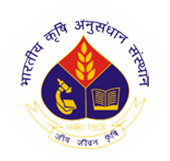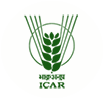Evidence Based Equine Nutrition A Practical Approach For Professionals [electronic resource] Edited by Teresa Hollands, Lizzie Drury.
Material type: TextLanguage: English Publisher: GB CABI 2023Description: 472ppContent type:
TextLanguage: English Publisher: GB CABI 2023Description: 472ppContent type: - text
- computer
- online resource
- 9781789245127
This book uniquely provides both the scientific basis of equine nutrition and the translation of that science into practical, day-to-day feeding advice. It summarises the latest research to provide readers with the evidence base needed to both confidently advise those who want to understand the science behind equine nutrition, and apply that evidence into practical advice for anyone who just wants to know how to feed horses. Both veterinary and animal science courses struggle to provide adequate nutrition training within their syllabuses. Much of the general information available is poorly explained and not evidence based. This book fills that gap, with the author team relaying over 50 cumulative years' experience teaching equine nutrition to both practising clinicians and students.Find answers to the most common queries and challenges encountered during nutritional consultations across 17 informative chapters, using typical case-based examples as experienced by the authors. Fully supported throughout with visual aids and photographic illustrations, they show how to easily increase compliance and understanding.Key topics covered include: How to take a diet history, including which forage and concentrates are most appropriate, and how to interpret the information on feed labels;How to take the horse's history, including workload, body weight and body fat scoring;Supporting achievable and sustainable fat loss in overweight horses; Appropriate rations across a range of performance disciplines and for breeding horses;Appropriate feeds and supplements for competition, including how to recognise potential hazards, signs of quality and issues of feed safety;How to use ration programmes, including a range of frequently asked questions for horses with specific nutritional requirements from allergies to obesity. A recommended resource to support the teaching of veterinary nutrition, this book should also be found on the bookshelf of all veterinarians, animal scientists, trainers, nutritionists, and nutritional advisors.This book includes forewords by Carl Lester, Honorary Fellow of the British Horse Society and recipient of an MBE for his services to Equestrianism, and Tim Mair, former President of the British Equine Veterinary Association.
There are no comments on this title.

